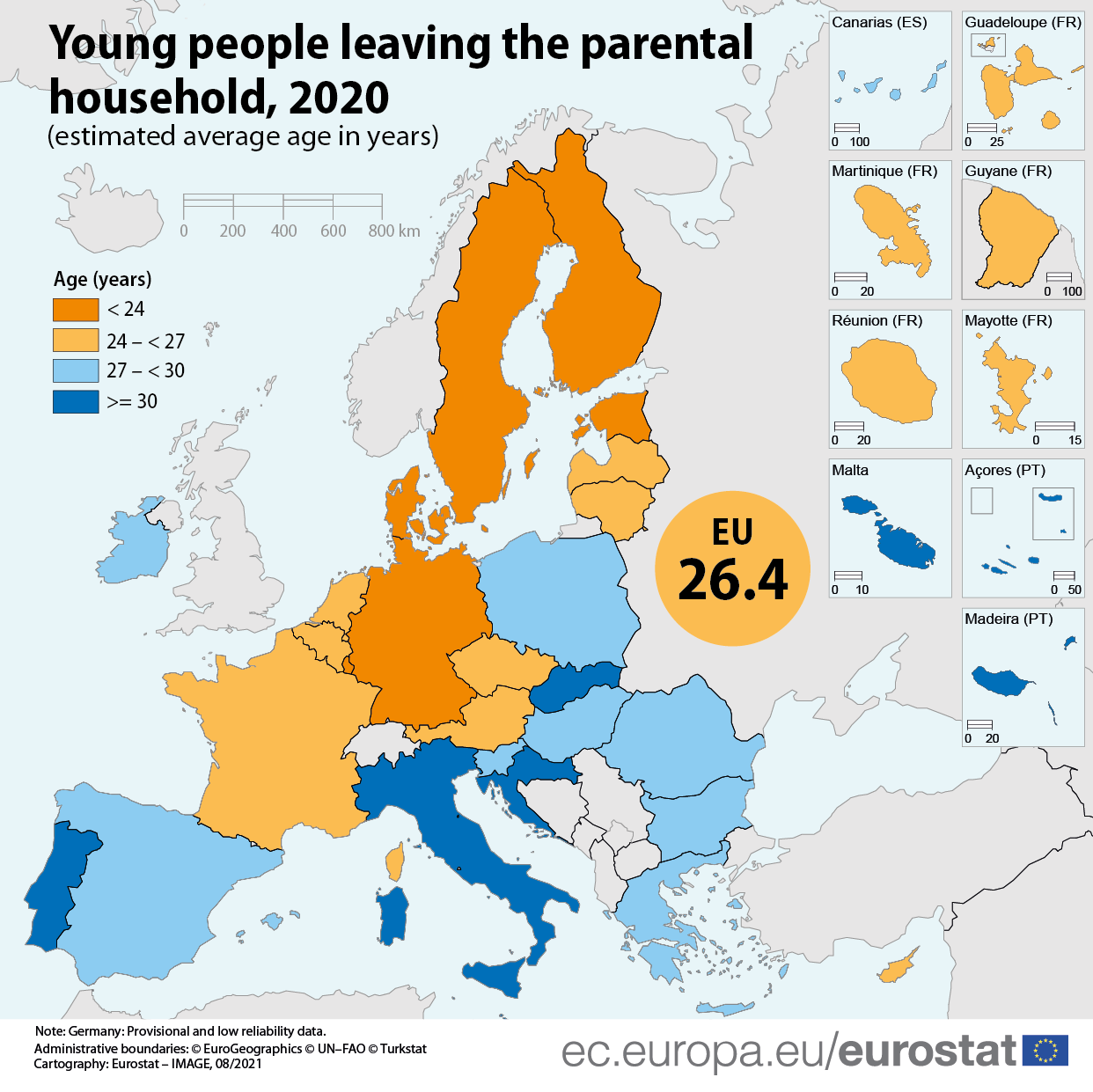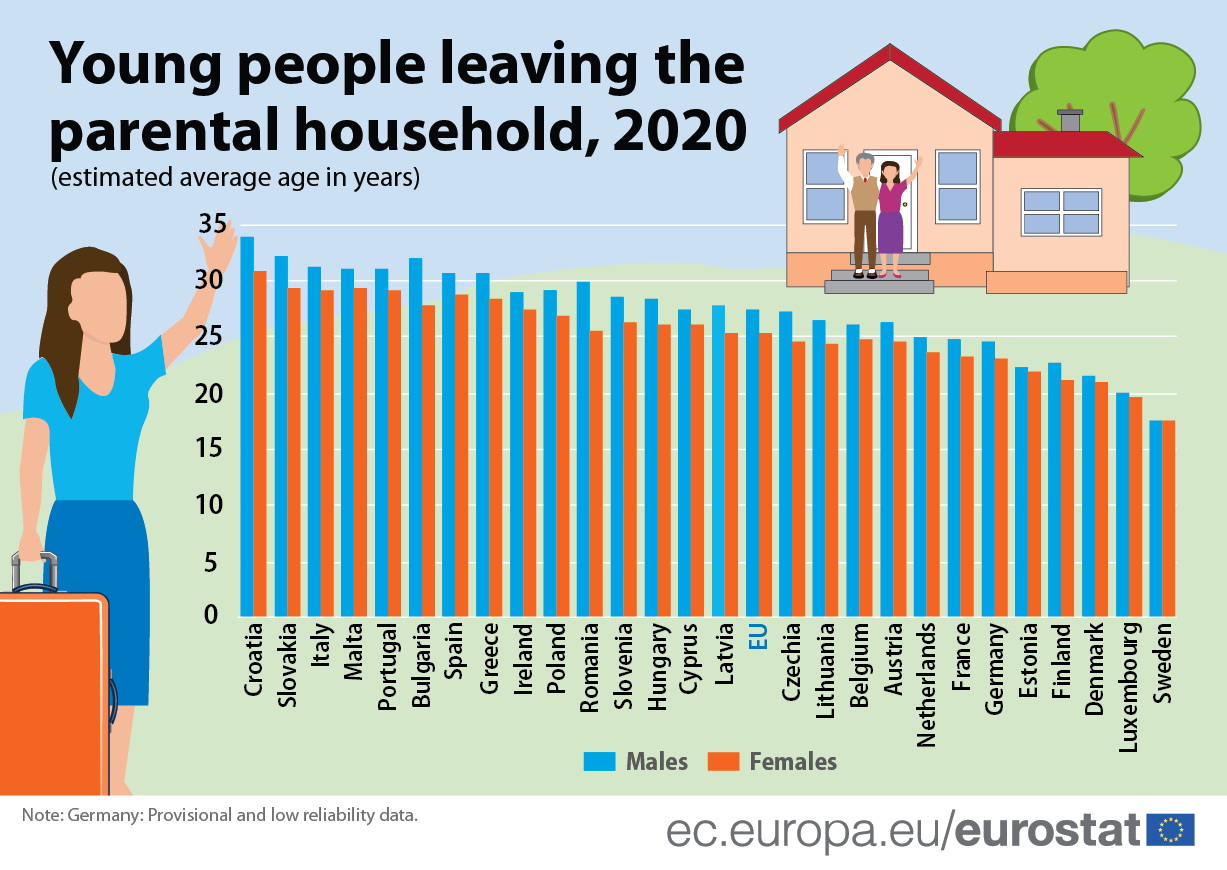
On the occasion of the International Youth Day Eurostat looks at the average age at which young people leave the parental household. In 2020, across the EU, young people left their parental household on average at the age of 26.4 years. However, this average varies among the different EU Member States.
The oldest average ages, all at 30 years or higher, were recorded in Croatia (32.4), Slovakia (30.9), Malta and Italy (both 30.2) and Portugal (30.0 years). By contrast, Denmark (21.2 years), Luxembourg (19.8) and Sweden (17.5) recorded the lowest average ages, all under 22 years old.
In most northern and western countries, young people left the parental home on average in their early to mid-twenties, while in southern and eastern countries the average age was in the late twenties or early thirties.
Source dataset: yth_demo_030
Men stay longer than women at the parental home
In the EU, on average, males left the parental household at the age of 27.4 years, and females at 25.4 years. This trend was observed in all countries, i.e. young women moved out of the parental household on average earlier than young men. The only slight exception was Sweden where females left on average 0.1 years after males.
The widest gender gaps were found in Romania, where young males left at 30.0, and females at 25.5 years (4.5 years gender gap), followed by Bulgaria (4.2 gender gap) with males moving out at 32.0, and females at 27.8 years. In Croatia, both young men and women moved out the latest in the EU (at the age of 34.0 and 30.9 years, respectively), representing the third widest gender gap of 3.1 years.
Sweden, Luxembourg and Estonia recorded the smallest gender gaps with 0.1, 0.4 and 0.5 years difference respectively between young males and females leaving the parental home.
The gender gap was more pronounced in countries where young people left the parental home later and less pronounced in countries where they left earlier.
Source dataset: yth_demo_030
For more information:
- See also our Statistics Explained article on Age of young people leaving their parental household.
- In Germany, since the first quarter of 2020, the Labour Force Survey (LFS) has been integrated into the newly designed German microcensus as a subsample. Unfortunately, for the LFS, technical issues and the COVID-19 crisis has had a large impact on the data collection processes, resulting in low response rates and a biased sample. Changes in the survey methodology also led to a break in the data series. The published German data are preliminary and may be revised in the future. For more information, see here.
To contact us, please visit our User Support page.
For press queries, please contact our Media Support.



